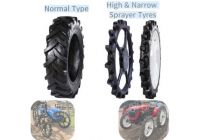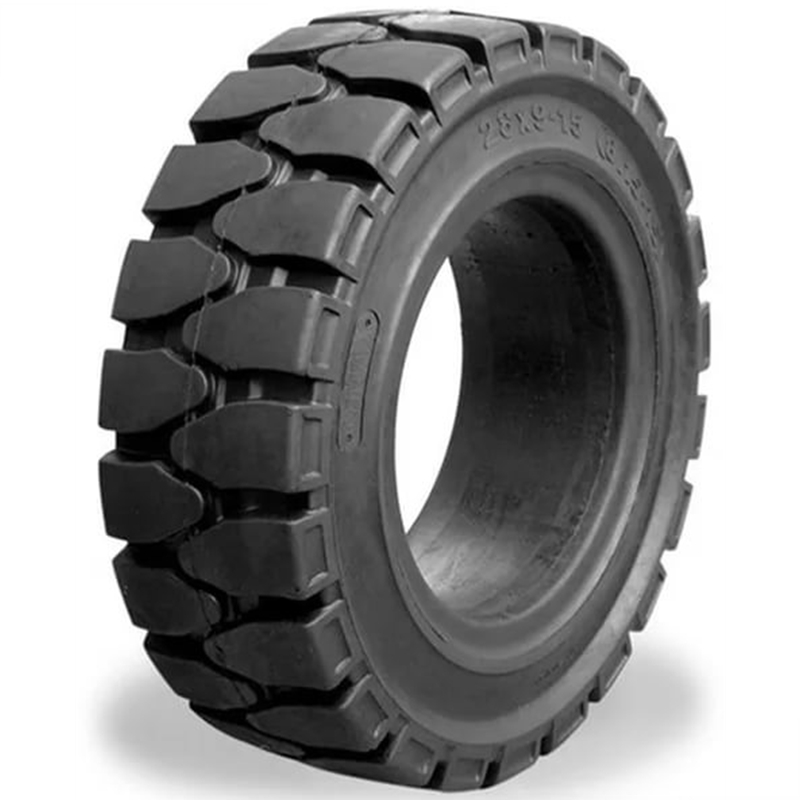Sprayer tyres, Rice transplanter tires and wheels, Agricultural tyres, tractor tires, Industrial Tyres, OTR Tires, skid tires, truck tires

Choosing the right agricultural tyres is crucial for the success of any farming operation. Tyres are an essential part of any agricultural equipment, as they support the weight of the machinery and provide traction in various conditions. Here are some reasons why it is important to choose the right agricultural tyres:
1. Improved Performance and Efficiency
The right agricultural tyres can greatly improve the performance and efficiency of your farm equipment. Tyres that are designed for specific tasks and conditions can provide better traction, stability, and flotation, resulting in improved machine handling and faster work completion. This can save time and increase productivity in the long run.
2. Reduced Downtime and Maintenance Costs
Choosing the right tyres can also help reduce downtime and maintenance costs. Tyres that are not suitable for the terrain or task at hand can wear out quickly, leading to frequent replacements and maintenance. This can be costly and can result in downtime, affecting your farming operations. By choosing the right tyres, you can reduce the frequency of replacements and maintenance, saving you time and money.
3. Increased Safety
Safety is crucial in any farming operation. Agricultural equipment can be dangerous, and choosing the right tyres can help ensure the safety of operators and other workers on the farm. Tyres that are not suitable for the terrain or are worn out can increase the risk of accidents, which can be avoided by using the right tyres.
4. Cost Efficiency
Choosing the right agricultural tyres can also save you money in the long run. Although specialized tyres may seem more expensive initially, they can save you money by providing better performance, reducing downtime, and increasing the lifespan of your equipment. This can result in long-term cost efficiency for your farm.
5. Better Adaptability to Different Conditions
Agricultural operations involve working in various conditions, such as wet, muddy, or rocky terrains. The right tyres can be designed to adapt to these different conditions, providing better performance and reducing the risk of getting stuck or causing damage to your equipment. This can help increase the longevity and efficiency of your farm equipment.
1. Determine your specific needs: The first step in choosing agricultural tyres is to understand your specific needs. Consider factors such as the type of vehicle, the type of terrain, the weight of the vehicle and the load capacity required.
2. Consider tyre size: The size of tyres you choose will depend on the type of vehicle you have. Larger vehicles like tractors and combines will need larger and more robust tyres to support their weight and power, while smaller vehicles like trailers or ATVs will require smaller tyres.
3. Know the type of tread: There are different types of tyre treads designed for specific terrains. For example, if your vehicle will be operating in muddy or wet conditions, you'll need a tyre with deep, wide treads for better traction. For hard, dry ground, a tyre with smaller, closely spaced treads is more suitable.
4. Analyze your budget: Agricultural tyres can be expensive, so it's important to have a budget in mind when selecting them. Consider the cost of the tyres, as well as potential maintenance and repair costs.
5. Look for reputable brands: There are many different brands of agricultural tyres available in the market, but not all are created equal. Go for brands that have a good reputation in the industry for quality and reliability.
6. Check the load index and speed rating: Every tyre has a load index and speed rating that indicates its weight capacity and maximum speed. It's important to choose tyres with the right load index and speed rating for your vehicle to ensure safety and prevent damage.
7. Consider buying in sets: When replacing tyres, it's recommended to replace all tyres on a vehicle at the same time, especially on larger vehicles. This ensures consistent performance and helps prolong the life of your tyres.
8. Consult an expert: If you're unsure about which agricultural tyres are best for your vehicle, it's always a good idea to consult an expert. A qualified tyre technician can assess your needs and recommend the right tyres for your specific application.
9. Read reviews: Before making a final decision, read reviews about the tyres you're considering. This will give you insight into the experiences and opinions of other users, which can help you make a more informed decision.
10. Consider warranty and after-sales support: Look for tyres that come with a warranty and after-sales support. This will give you peace of mind knowing that you're covered in case of any defects or issues with the tyres.

The size and weight of agricultural tyres can have a significant impact on agricultural machinery in terms of performance, efficiency, and overall operation. Some of the key impacts are:
1. Traction and Grip: Larger and heavier agricultural tyres provide better traction and grip, allowing the machinery to operate more effectively on different types of terrain and in adverse weather conditions.
2. Load Bearing Capacity: The size and weight of tyres determine the load bearing capacity of the agricultural machinery. Heavier and larger tyres can carry heavier loads, which is important for large-scale farming operations.
3. Soil Compaction: The size and weight of tyres also play a crucial role in reducing soil compaction. Smaller and lighter tyres can cause more compaction, leading to reduced soil fertility and yield. Larger and heavier tyres distribute the weight more evenly, minimizing soil compaction.
4. Stability and Maneuverability: The size and weight of tyres also impact the stability and maneuverability of the agricultural machinery. Heavier tyres provide better stability, especially on uneven terrain, while smaller tyres may offer better maneuverability in tight spaces.
5. Fuel Efficiency: The size and weight of tyres can also affect the fuel efficiency of the machinery. Larger and heavier tyres may require more power to operate, resulting in higher fuel consumption.
6. Cost: Bigger and heavier tyres are usually more expensive compared to smaller ones. Therefore, the overall cost of the machinery may increase with the use of larger and heavier tyres.
1. Check tyre pressure regularly: Proper tyre pressure is essential for agricultural tyres to function correctly and have a longer lifespan. Use a tyre pressure gauge to measure the pressure and adjust it as needed.
2. Use the right pressure for different applications: The recommended tyre pressure will vary for different applications, such as field work or road transport. Make sure to use the appropriate pressure to prevent premature wear and tear.
3. Avoid overloading: Overloading agricultural tyres can cause excessive pressure and strain on the tyres, leading to damage and shorter lifespan. Make sure to follow the manufacturer's guidelines for load capacity.
4. Rotate tyres regularly: Regularly rotating the tyres can promote even wear and distribute weight evenly, extending the service life of the tyres.
5. Avoid driving on rough or rocky terrain: Rough terrain, such as rocks and sharp objects, can cause damage to the tyres and reduce their lifespan. Avoid driving on these types of surfaces as much as possible.
6. Keep tyres clean: Dirt, debris, and mud can accumulate on tyres and cause damage if left uncleaned. Make sure to clean the tyres regularly, especially after working in muddy or dirty fields.
7. Inspect tyres for wear and damage: Regularly check the tyres for any signs of wear or damage, such as cracks, bulges, or uneven wear. If any issues are spotted, replace the tyres immediately to avoid further damage.
8. Store tyres correctly: Proper storage is critical to maintaining the integrity of agricultural tyres. Store them in a clean, dry, and cool place away from direct sunlight or heat sources. Also, do not stack tyres on top of each other.
9. Replace tyres when needed: Even with proper maintenance, agricultural tyres will eventually need to be replaced due to wear and tear. Replace them as needed to ensure safety and optimal performance.
10. Consult an expert: If in doubt about how to use or maintain agricultural tyres correctly, consult an expert or qualified technician for advice. They can provide valuable information and tips on proper tyre maintenance for different agricultural applications.